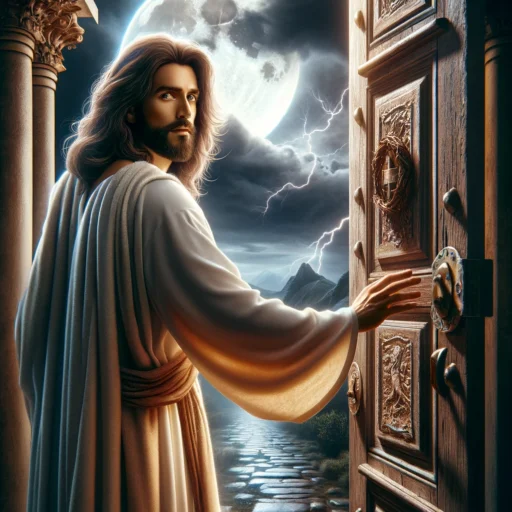How Jesus is the lord of the Sabbath
Christ’s statement that He is “Lord of the Sabbath” affirms Jesus’ divine authority granted by Yahweh (the Father) to him. It doesn’t mean that Jesus is Yahweh or part of a co-equal, co-eternal Trinity.
Let’s break this down step by step using scripture and logical reasoning:
📖 Key Scripture:
Matthew 12:8 (WEB):
“For the Son of Man is Lord of the Sabbath.”
This is also found in Mark 2:27–28 and Luke 6:5.
🔍 How this can be explained:
- “Lord of the Sabbath” Means Having Authority Over the Sabbath – Not Being Its Creator
-
- “Lord” (Greek: κύριος, kyrios) often means master or one having authority — not necessarily God Himself.
- Jesus uses the term “Son of Man”, which often emphasizes his human role, not divine identity.
Conclusion: Jesus is given authority over the Sabbath, which reflects a functional role, not equality with God.
- Jesus Received Authority from Yahweh
-
- Matthew 28:18 (WEB):
“All authority has been given to me in heaven and on earth.”
(Note: Authority was given, not inherent.)
-
- John 5:27 (WEB):
“He [the Father] also gave him authority to execute judgment, because he is the Son of Man.”
Conclusion: Jesus’ authority over the Sabbath came from Yahweh, who is the ultimate Lawgiver. Jesus, as the Father’s agent, upholds and rightly interprets the Sabbath.
- Context: Jesus Defends Mercy Over Legalism
-
- Mark 2:27 (WEB):
“The Sabbath was made for man, not man for the Sabbath.”
-
- Jesus challenges the Pharisees’ legalistic view of Sabbath by asserting that human need and mercy take precedence.
Conclusion: Being “Lord of the Sabbath” means Jesus has the authority, as the Messiah, to teach the Sabbath’s intended purpose — not that he created it.
- Scripture Never Says Jesus Instituted the Sabbath
-
- Genesis 2:3 shows Yahweh sanctified the Sabbath.
- The command to keep the Sabbath is Yahweh’s law (Exodus 20:8–11).
- Nowhere does Jesus claim he created the Sabbath — only that he has the authority to properly interpret and apply it.
Conclusion: Jesus, as Yahweh’s anointed servant and prophet (see Deuteronomy 18:18; Acts 3:22), speaks with delegated authority.
- Scriptural Pattern of Delegated Authority
Just as:
-
- Moses delivered Yahweh’s law,
- The prophets spoke on Yahweh’s behalf,
- Jesus acts as Yahweh’s ultimate representative.
John 8:28 (WEB):
“I do nothing of myself, but as my Father taught me, I say these things.”
🧾 Summary:
| Jesus said | Meaning |
| “Lord of the Sabbath” | He has delegated authority from Yahweh to interpret and apply the Sabbath law |
| “Son of Man” | Emphasizes his human and messianic role, not divine identity |
| Authority | Is given to him by the Father (Yahweh), not inherently possessed as co-equal deity |
📘 Final Thought:
Jesus is not Yahweh, but as the Messiah sent by Yahweh, granted divine authority to fulfill his mission. His lordship over the Sabbath is a confirmation of his messianic role, not a statement of being the originator of the Sabbath or equal to the Father.
